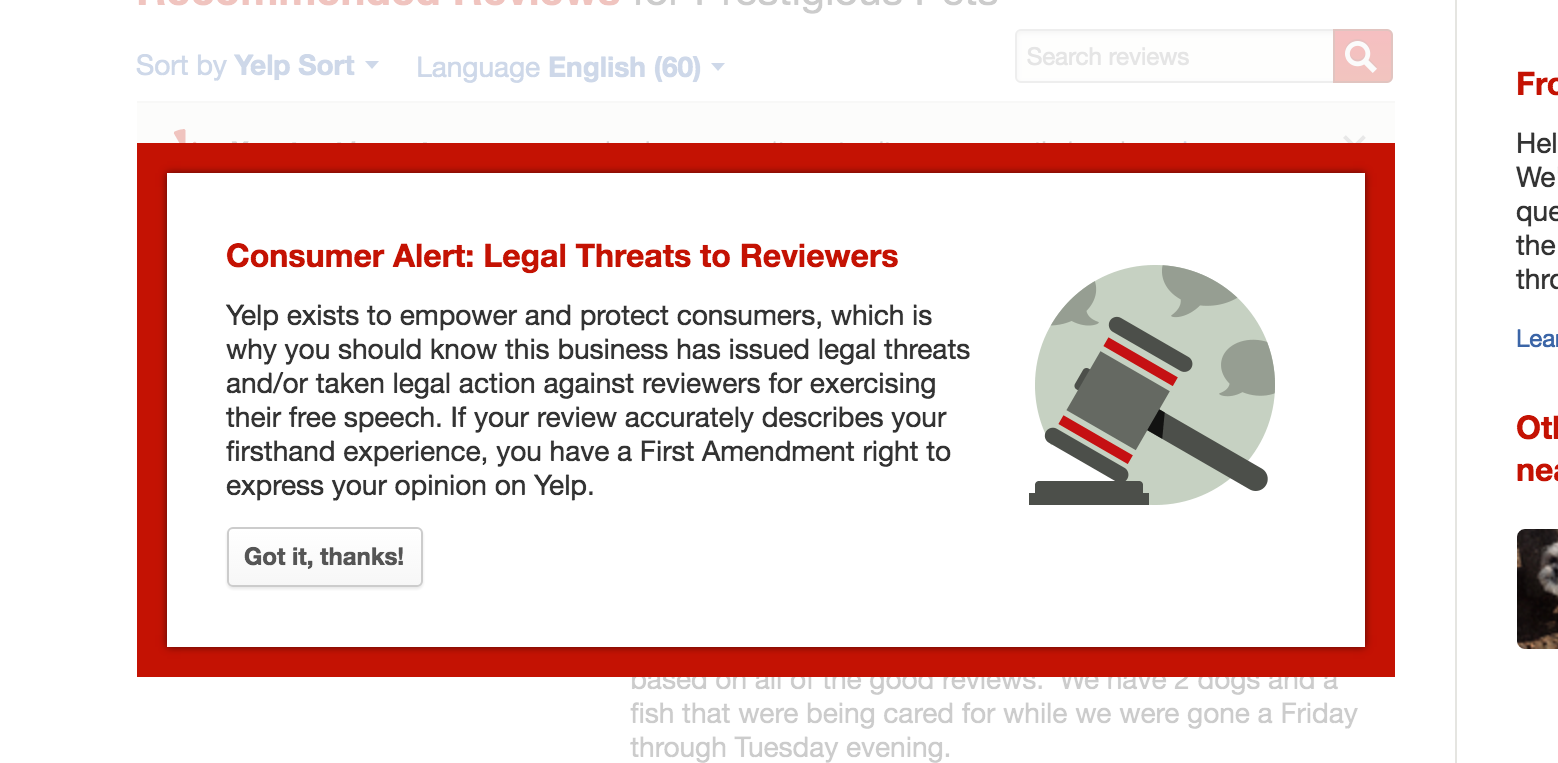It was a simple email: four sentences sent in early 2010 to a nursing home administrator about the care of one of the home’s residents. Days later, the author of that email — along with his girlfriend, the resident’s daughter — were accused of trespassing, civil harassment, intentional interference with contractual relations, and, bizarrely, defamation; ostensibly because they had exercised their legal right to copy their attorney on the message. [More]
slapp happy

What Are SLAPPs And Anti-SLAPPs… And Why Should You Care?
We all know the stories about big companies and well-heeled individuals filing nuisance lawsuits against whistleblowers, competitors, or other troublemakers just to shut these less-resourceful parties up. There’s a name for that sort of lawsuit, and — at least in some states — there are ways for defendants to fight back. However, even the best available remedies are far from perfect. [More]

Couple That Was Sued For $1M Over Yelp Review Asks Court To Dismiss Lawsuit
For months, we’ve been following the saga of the Texas couple who were first sued by their petsitter for $6,766 over a negative Yelp review, only to have that case dropped and re-filed as a full-on defamation lawsuit seeking up to $1 million in damages. Now, the couple is asking the court to just throw the entire case out because it should be prohibited by Texas state law. [More]

59 Law Professors Urge Congress To Pass Bill Protecting Free Speech From Frivolous Lawsuits
Imagine you run a local news site and you’re working on a great new story about the town’s largest employer that uncovers some very bad behavior. You’re all set to publish, then you receive notice that this company has filed a lawsuit against you for something frivolous, like copyright or trademark infringement, that could never be proven at trial — but which could bankrupt you and your small-time operation long before it ever gets to that point. It’s a practice known as a Strategic Lawsuit Against Public Participation (SLAPP) and it’s a not-uncommon way for deep-pocketed companies and individuals to try to intimidate potential whistleblowers and others into remaining quiet. [More]


